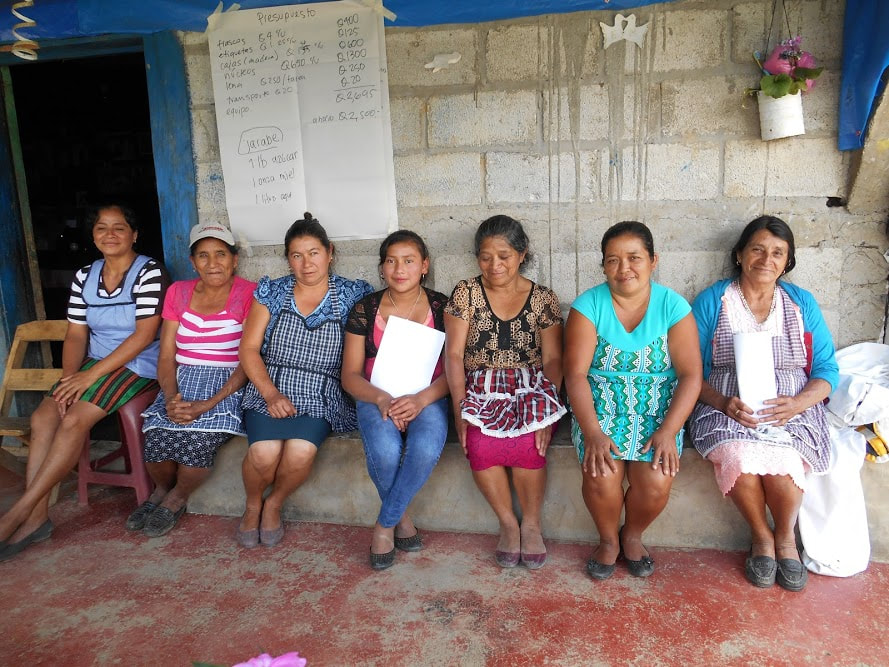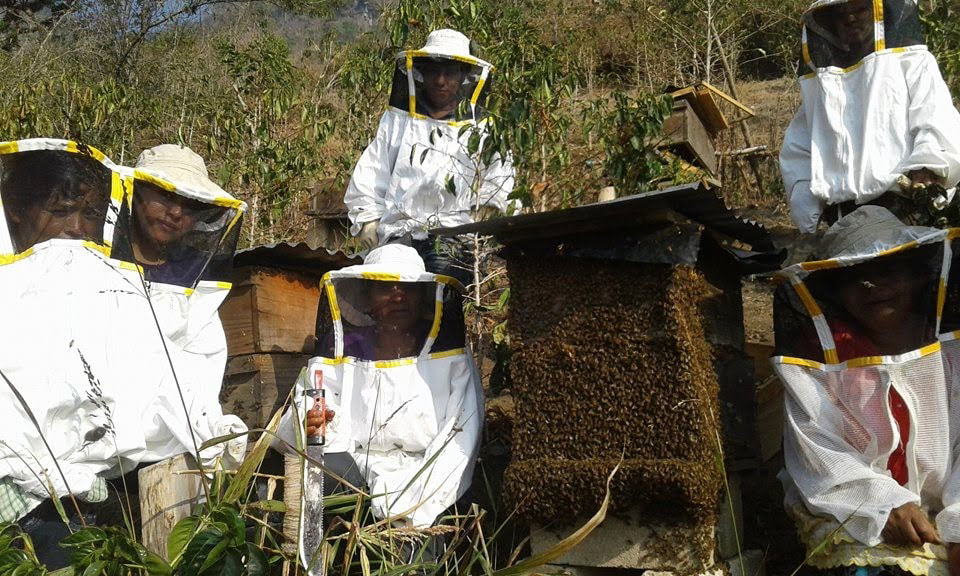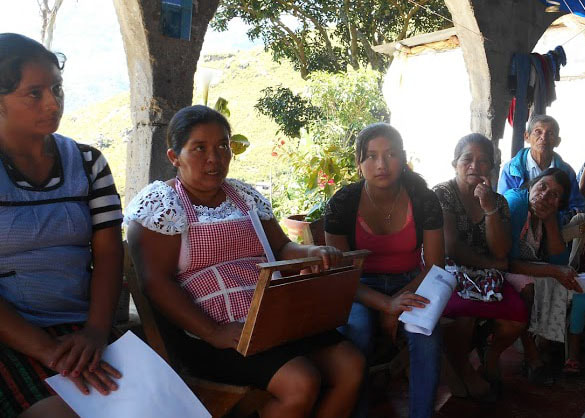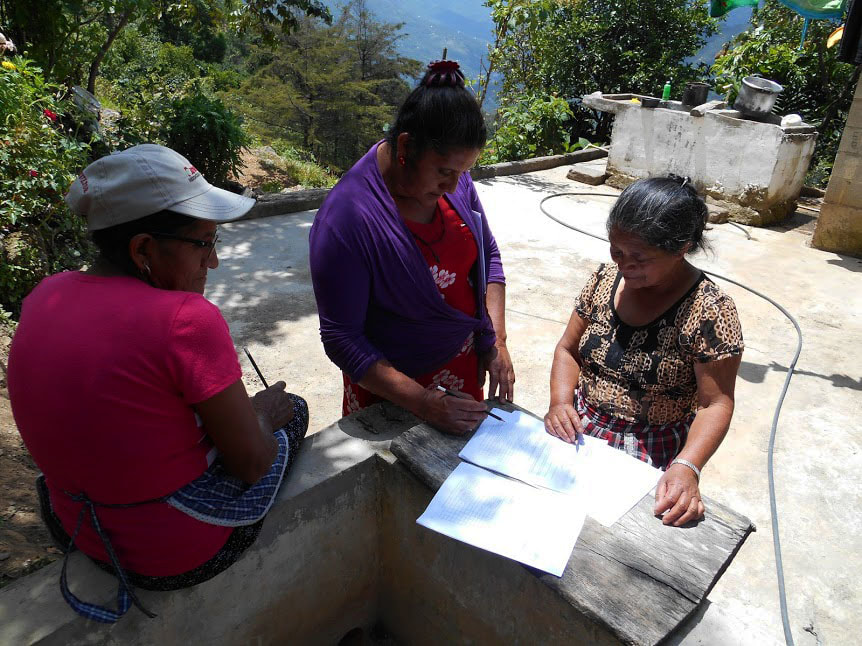On a warm morning in July, Pueblo a Pueblo beekeeping project managers Ana and Genaro arrived at the hillside home of Floridalma Tomás Gómez. Floridalma is the leader of Las Diez Rosas, an all-female beekeeping collective based in Cumbre de Huicá, a small community in the mountainous northwestern state of Huehuetenango.
Floridalma’s home has been the group’s designated meeting site since the beginning of their three-year partnership with Pueblo a Pueblo. It is also where Ana and Genaro have come to offer trainings, resources, and hands-on support as Las Diez Rosas persevered through their first three years as a collective. Together, they have discussed everything from correct beehive maintenance to effective communication. Now Floridalma is opening her home to the last joint workshop--Las Diez Rosas are ready to operate independently of Pueblo a Pueblo support!
The women of Las Diez Rosas have much in common. They are all mothers, they are all coffee farmers, and now they are all beekeepers, too. They approach their triple set of responsibilities with courage and commitment. None of them finished primary school, and only one member of the group had any beekeeping experience when the collective formed. But since their first honey harvest three years ago, they have increased their yield seven times over.
Beekeeping is important to Las Diez Rosas because it provides them with a secondary source of income to supplement the small and unreliable income they earn from coffee production. This is a vital benefit given that the coffee harvest comes only once a year and their crop is under constant threat from disease, climate change, and market pressures. But the time Las Diez Rosas have spent working as a collective has come to mean so much more than just what they earn together.
As the beekeepers strive—and succeed—their children are watching. Having seen their mothers rescue hives from destructive storms and negotiate business decisions as a team, the beekeepers’ sons and daughters have become accustomed to seeing their mothers fight for success. Floridalma has felt this impact quite personally; many of her family members have taken note of her efforts. “The most significant change in my life because of this project is seeing the transformation within my own family,” says Floridalma. “Both men and women are now aware that women can perform tasks and jobs outside of domestic chores.”
Another collective member, Ema Castillo, expressed the impact this shift has had on her. “The most significant change this project has had in my life is the restoration of my own worth not only as a hardworking woman, but as a human being,” she says. “With the introduction of this project, our community has been reminded that women can achieve just as much as men can, and that we can be successful businesswomen if we so choose to be.”
The beekeepers are proud to see their hard work changing minds throughout their community. “There are still people who believe that women cannot work in agriculture or apiculture as it is believed that this is work suitable only for men,” explains Floridalma. “With this project, not only are we improving ourselves as individuals and as professionals, we are also educating our community about the importance of gender equality.”
Over time, the group’s persistence silenced skeptics. “At first, we were criticized by our male counterparts as they believed we would fail in this project,” says Ema. “But after we all worked hard together and we had good results during the testing phase, they began to trust that we could be successful.” Their courage has paved the way for future iterations of the collective—and future groups of women who dare to do what Las Diez Rosas have done.
The Rosas’ bond
The space these beekeepers have carved out for themselves is unique, and so is the group dynamic they have cultivated among members. “This project has helped us all work in collaboration with one another, something that was new for many of us,” explains Ema. “In this way, we have learned how to develop a wonderful support group.” This web of caring communication and mutual encouragement will only grow stronger as the Rosas continue to work together and welcome new members into their fold.
Although Pueblo a Pueblo will no longer form an official part of the Rosas’ support network, Ana and Genaro will stay in touch with the beekeepers. We can’t wait to see all that Las Diez Rosas continue to accomplish and the impact they continue to have on their communities and on each other.
Check out this video to hear more of the Rosas' reflections!





 RSS Feed
RSS Feed